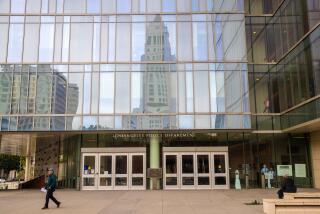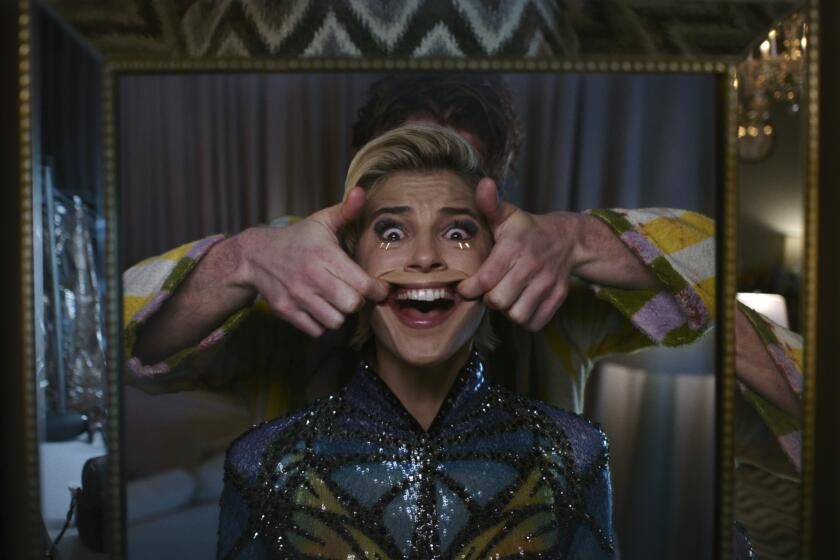Elite Units Troublesome, but Useful
In the morality film, âA Few Good Men,â audiences cheered when Tom Cruiseâs character--the idealistic and determined young judge advocate general--triumphed in court over Jack Nicholsonâs snarling colonel. But if you want to clean up mean streets, which one would you call?
Allegations of police misconduct in LAPDâs Rampart Division and the killing of Amadou Diallo by New York police--although the officers were acquitted of any criminal conduct--have raised questions about police management, training, tactics and behavior. These events may result from racial profiling, police brutality or management mediocrity--all problems that must be addressed. But much of the explanation also may he found in the unique attributes of elite units.
From the French pares to British SAS, from Green Berets to LAPDâs anti-gang CRASH units and NYPDâs Street Crime Units, special units have been deployed to carry out missions that are considered beyond the capacity of the regular force. They hunt guerrillas. They neutralize terrorists. They combat gangs. They are the shock troops to reduce street crime.
These units are seen and they see themselves as âspecialâ in two ways--as a specialized force and as elite. This contributes to their esprit de corps but it also reinforces their sense of apartness.
They are assigned missions considered difficult and dangerous and as requiring extraordinary measures. Normal procedures havenât worked. This fosters creativity but it can also breed contempt for the âdesksâ--the bureaucracy that comes with any large organization, and for the rules imposed by the law.
As volunteer units, they often attract the most dedicated and zealous officers, but the prospect of action and the opportunity to escape the dull drill of routine soldiering or policing can also lure the mavericks, the misfits, the adventurers, the cowboys. One wants a few mature men with a deep respect for the law and its institutions, not misguided heroes or compulsive risk-takers. It is therefore dangerous to rapidly expand elite units.
Given the danger of their profession and the added danger of their particular assignment, they tend to view the world in terms of combat, knights against dragons, good versus evil. They cultivate an image of toughness to intimidate their foes and to impress each other.
The profound sense of mission, the action, the danger can become intoxicating. Once in, some never leave. Normal career incentives no longer apply. They abhor âtime-serversâ and âticket punchers.â International law describes soldiers in combat as âprivileged combatants,â that is, they are privileged in war to break peacetime laws; they can kill enemy soldiers without fear of subsequent prosecution as criminals. Members of elite units easily come to regard themselves as the especially privileged combatants.
They often operate outside the normal organizational controls. Mission-oriented, determined to âwin,â they bend and sometimes break the rules to get the job done. They come to believe that rules are for the regulars, but âwe know what we have to do.â This is not always self-serving justification. Pleased with the results, the top brass may choose not to inquire too closely just how it is being accomplished. The operators interpret this as a wink of approval.
Through autonomous commands or through their own networks, they are determined to run their own show. They tend to see their bosses as captives of the politicos who are nothing but frail reeds in the winds of fickle public opinion. They can protect their superiors by keeping them uninformed, lying to them if necessary. Since they assume they have tacit approval, it is easy to further assume that such deception is part of the silent bargain. They miss signals of disapproval.
Cops and soldiers are clannish to begin with, elite units doubly so. Their members stick together. They operate in their own universe; they develop their own rules of engagement, their own codes of conduct. They donât like the rogues either, but the boundaries of acceptable behavior are not clear while mutual protection through silence is a subcultural commandment.
Their behavior can sometimes border on defiance--like flying a white flag at the headquarters of the Street Crime Unit when the NYPD decided to abolish it as a separate command. It was not a symbol of their surrender; it was what they thought of the careerists at headquarters who caved.
They are not âdirtyâ cops in the traditional sense. They are not on the take. They protect and they serve, even if some of them interpret that to mean that they can break the law.
Contrary to the popular view, they are not universally despised by the local community. Their tasks often require detailed knowledge of the social geography where they operate. They claim they know who the bad guys are and what they are up to, even if no laws have yet been broken. They may be highly regarded as a welcome alternative to the tyranny of insecurity and fear caused by rampant crime.
Disbanding them may appease critics, although it silently indicts the best along with the handful of bad. The lesson to be learned: Elite units require skillful management and excellent leadership.
More to Read
Only good movies
Get the Indie Focus newsletter, Mark Olsen's weekly guide to the world of cinema.
You may occasionally receive promotional content from the Los Angeles Times.










